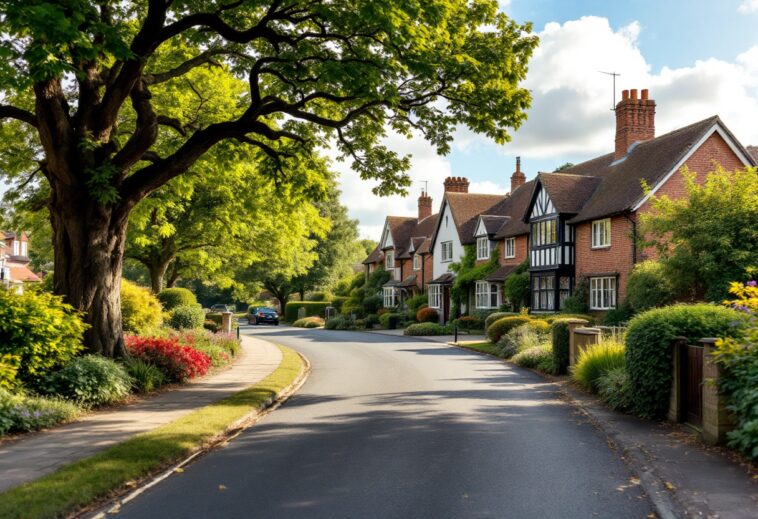Table of Contents
In a classic “David and Goliath” scenario, residents of Huntingfield, Suffolk, are rallying against a billionaire entrepreneur’s ambitious plan to establish a lavish wedding venue that could charge up to $37,200 per night. With a population of just 150, locals are concerned that the proposed entertainment center, capable of hosting 288 guests, will disrupt their tranquil rural lifestyle.
Concerns over local impact
The venue, known as Blyth Barn, is part of the Wilderness Reserve, owned by Jon Hunt, the founder of the estate agency Foxtons. This luxury holiday destination has attracted celebrities like Zoe Sugg and Jack Whitehall, but its expansion into a full-fledged entertainment center has sparked outrage among residents.
They argue that the approval of a 24-hour alcohol license will exacerbate traffic issues and lead to late-night disturbances in their quiet village.
At a recent extraordinary general meeting of the Huntingfield Parish Council, over 50 objectors gathered to voice their concerns about the perceived bias in the application process.
The Wilderness Reserve is also seeking retrospective planning permission to convert three approved holiday lets into a single guest house, which will feature 17 rooms, a swimming pool, hot tub, sauna, gym, and party room.
Voices from the community
Local residents Lorraine Brennan, 61, and Nina Roe, 39, have been vocal opponents of the plans.
They express frustration over the shift from a proposed “rural retreat” to a large entertainment venue. Lorraine, who has lived in the village for eight years, fears that the influx of visitors will disrupt the peaceful atmosphere that defines their community.
“We feel as if we’ve been disregarded and unconsidered all in the name of money,” she lamented.
Residents are particularly worried about potential issues such as drunken behavior, drug use, and inadequate security measures. Lorraine recalls the initial excitement surrounding the Valley Farm site’s development, which she believed would enhance the village.
However, the transformation into an entertainment center has left her feeling betrayed. “It will be larger than our village,” she stated, highlighting the ongoing construction noise that has already disturbed their peace.
Regulatory challenges and community response
The licensing meeting held on January 15 saw the reserve’s barrister describe the venue as a “deconstructed hotel” aimed at promoting sustainability and the rural economy. Despite the granting of the alcohol license, it comes with conditions, including a Challenge 25 policy requiring ID checks for patrons under 25 and a noise management plan to be developed in consultation with East Suffolk Council.
However, residents like Nina Roe remain skeptical. She pointed out that the proposed measures do not adequately address the potential negative impacts on traffic, light pollution, and local wildlife. “Guests will be moving down into the village, coming into the pub — nobody in the venue can stop that,” she argued, emphasizing the inadequacy of the single narrow lanes leading into their community.
As Blyth Barn prepares to open for weddings and corporate events in May 2025, the Wilderness Reserve has yet to respond to the mounting concerns from the local community. The ongoing battle between the villagers and the luxury venue highlights the tension between development and the preservation of rural life, a conflict that resonates deeply with many communities facing similar challenges.




